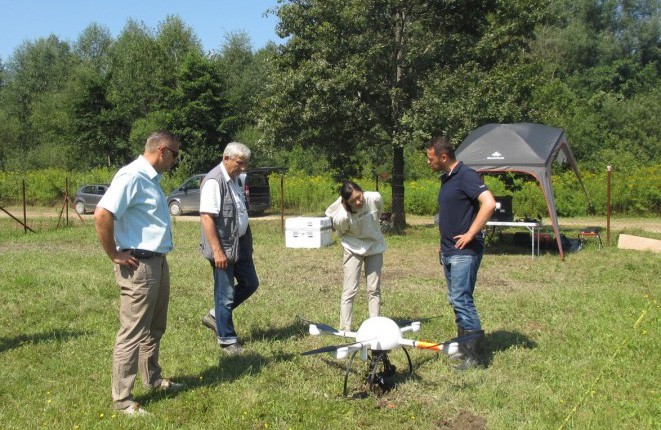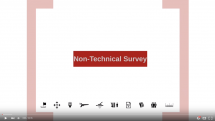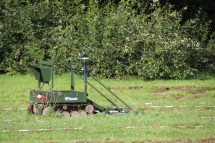Japanese Ambassador becomes the guest of honour during TIRAMISU test in Cerovac
Over the past few months, the Croatian Mine Action Centre (CMAC) has been testing a method of detecting landmines which involves using honeybees, at its Cerovac test site in Croatia. This method was developed as part of the TIRAMISU project, funded by the European Union which aims to develop a toolbox that can assist personnel working in the field of Humanitarian Demining. The toolbox is designed to ensure the effectiveness and efficiency of demining operations, in order to reduce the economic and human costs associated with landmines.
At the 11th International Symposium and Equipment Exhibition “Mine Action 2014”, held in April in Petrcane near Zadar, His Excellency Mr. Keiji Ide, the Japanese Ambassador to the Republic of Croatia showed a strong interest in the project. Mr Ide was particularly interested to learn that the Japanese University of Sendai was participating in the project consortium, and was responsible for the development of a new generation dual sensor hand-held metal detector (ALIS).
As a result of this interest Mr. Ide was invited to Cerovac test site on the 8th of August to participate in a TIRAMISU field test. Dr Nikola Kezi? from the University of Zagreb provided the ambassador with further information detailing the methods and techniques which the University of Zagreb is developing in the context of the project. The Ambassador was also interested in learning about the activities of the Royal Military Academy (RMA) of Belgium (based in Brussels), the coordinator of the TIRAMISU project. RMA provided its own Remotely Piloted Aerial System to monitor the activities of the honeybees and to analyse their ability to detect buried mines.
Mr. Nikola Pavkovi?, the director of CMAC, further explained the work carried out on the Cerovac test site to Mr. Ide, and provided an overview of the activities of CMAC in general, including the mine action training courses delivered to Humanitarian Demining operators in different regions such as south-east Europe, Asia and other parts of the world.




